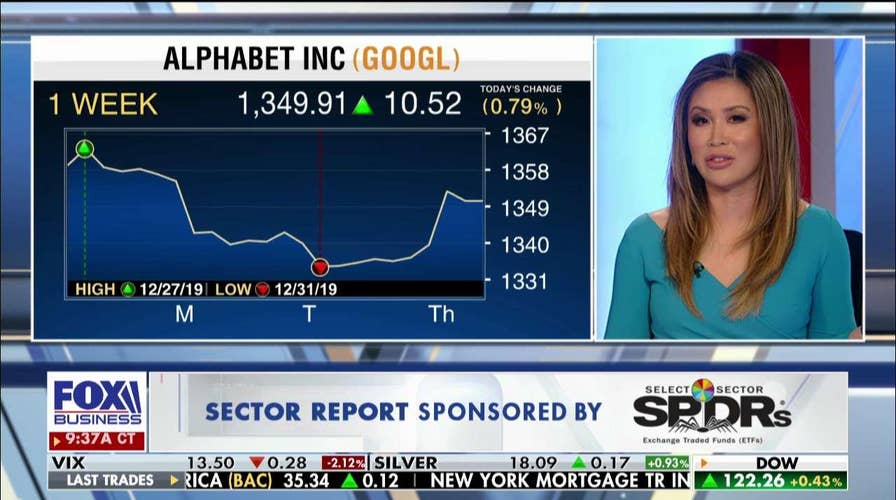Susan Li reacts to Google Health's AI breast cancer study
Fox Business's Susan Li told Stuart Varney that data from Google Health's new breast cancer study, while positive, needs more development.
A new Google artificial intelligence model appears capable of more accurately spotting breast cancer in mammograms than radiologists.
In a study published in the scientific journal Nature, researchers from Google Health, Northwestern University and three British medical institutions wrote in their abstract that they had aimed to "identify breast cancer before symptoms appear, enabling earlier therapy for [a] more treatable disease."
"Despite the existence of screening programs worldwide, interpretation of these images suffers from suboptimal rates of false positives and false negatives," they continued. "Here we present an AI system capable of surpassing a single expert reader in breast cancer prediction performance."
GOOGLE DEFENDS AMASSING HEALTH DATE ON MILLIONS OF PEOPLE
An algorithm tool was fed clinical data that included breast cancer scans from about 91,000 women in the U.S. and the U.K. All of the scans had been scraped of personal identifiers. Then the algorithm was tested on new sets of de-identified breast scans.
Compared to human experts, the program reduced false negatives by 9.4 percent for U.S. subjects and 2.7 percent for U.K. subjects. It reduced false positives by 5.7 percent for U.S. subjects and 1.2 percent for U.K. subjects, respectively.
Fox Business reporter Susan Li told "Varney" host Stuart Varney on Thursday that the results "are pretty marginal at this point."
"These are not huge numbers and, I would say, incredibly positive and successful numbers to hang your hat on," she added. "So, I think there still needs some more development here."
"Especially because AI is in its very early stages and you've got a ways to go so you can improve the performance of this test," Varney remarked.
CLICK HERE FOR THE FOX NEWS APP
According to the American Cancer Society, clinicians fail to find about 20 percent of all breast cancers and half of all American women getting yearly mammograms are, over the course of a decade, wrongly told they might have cancer.
Breast cancer is the second leading cause of death from cancer in women, although outcomes improve considerably if the disease is caught early.
"We believe this is just the beginning," Google researcher Daniel Tse told STAT News. "There are things that these models and technology are really good at, and there are things that radiologists. who spend their whole lives doing this, are really good at."






















